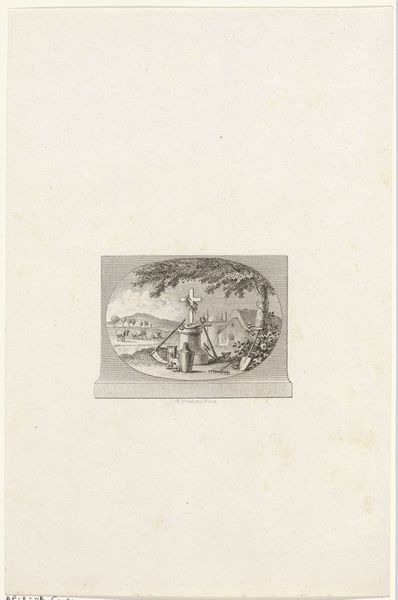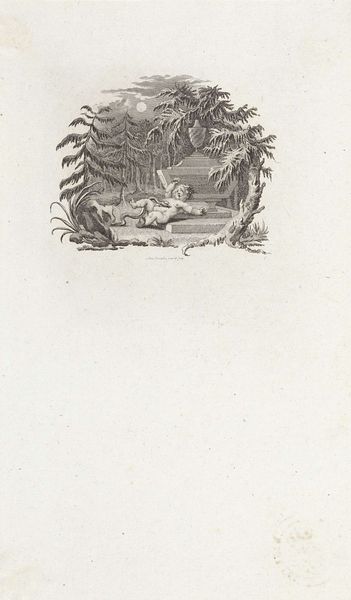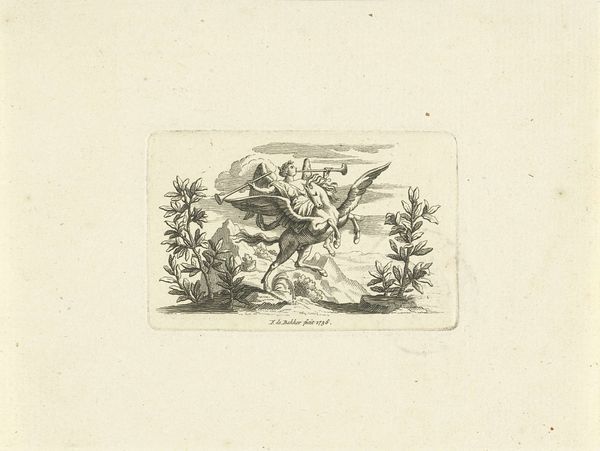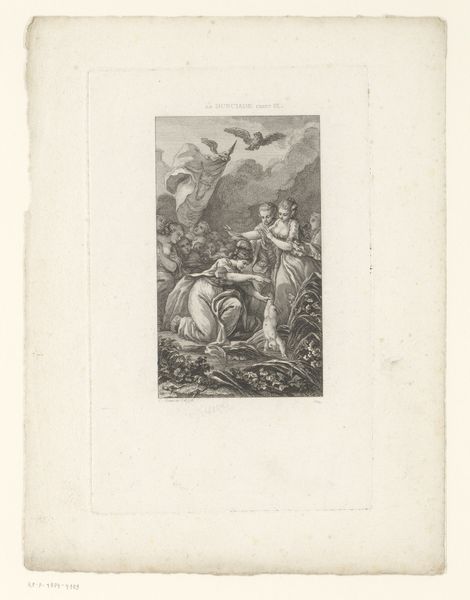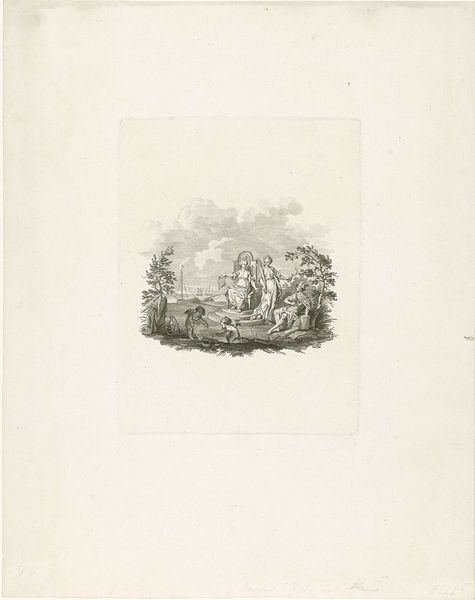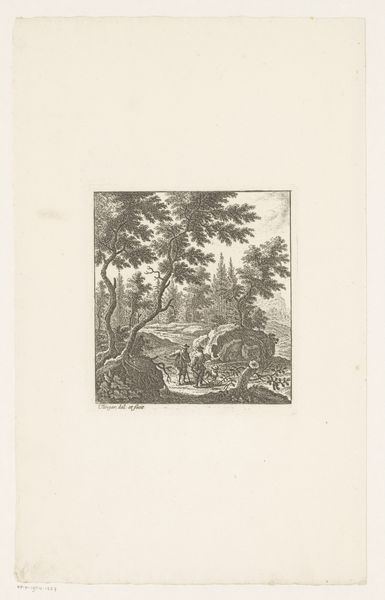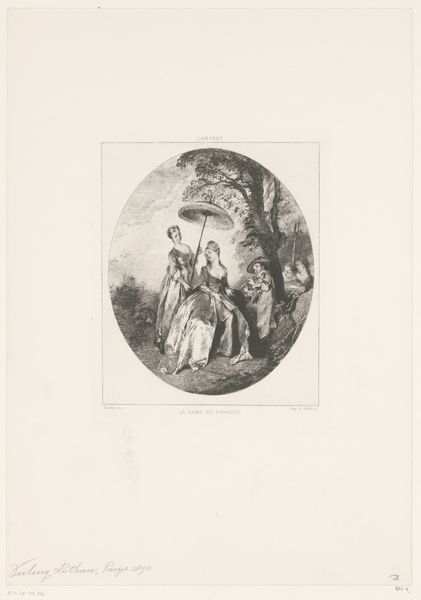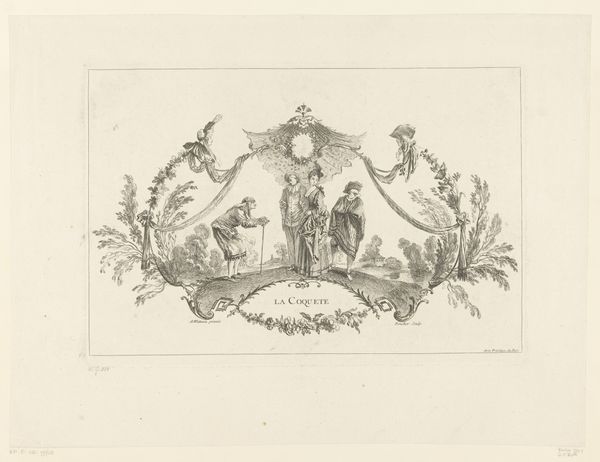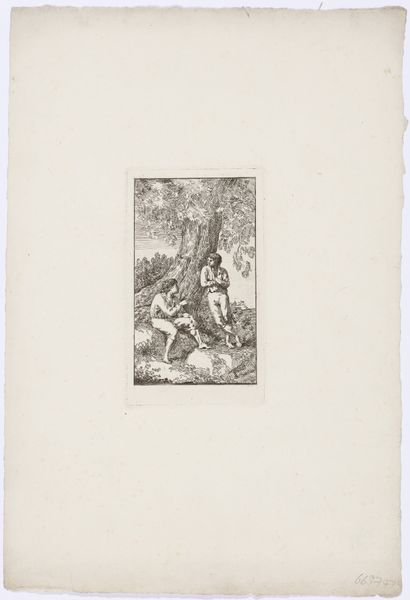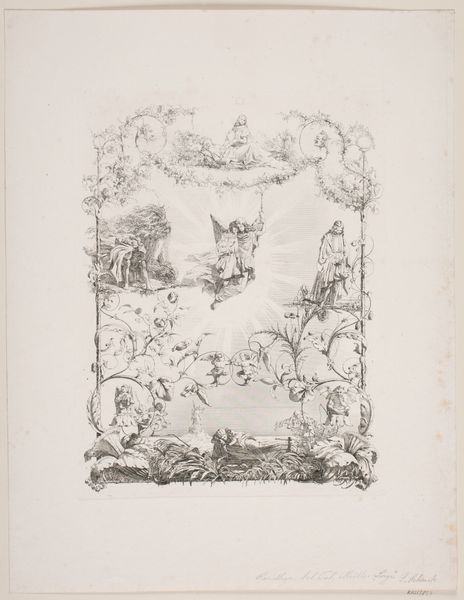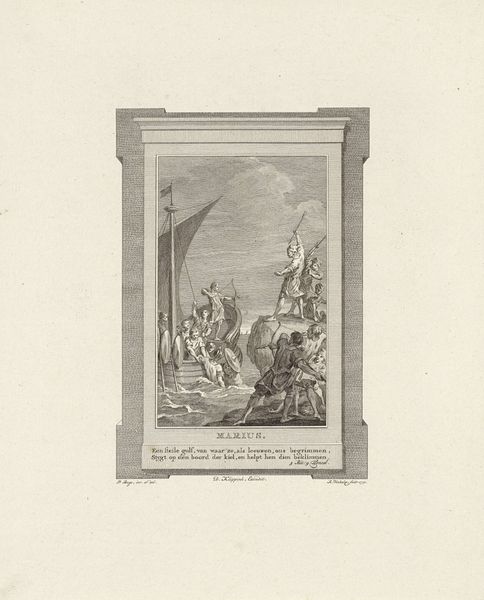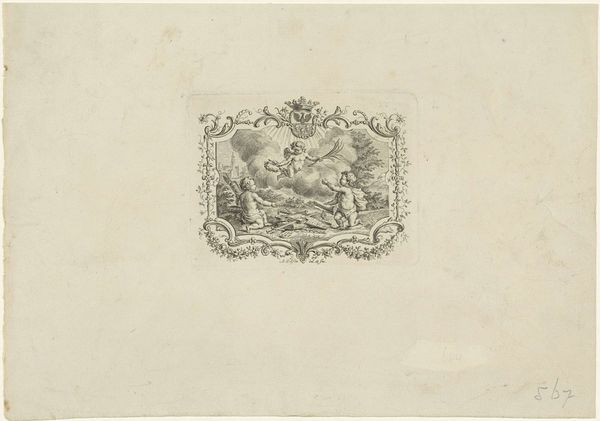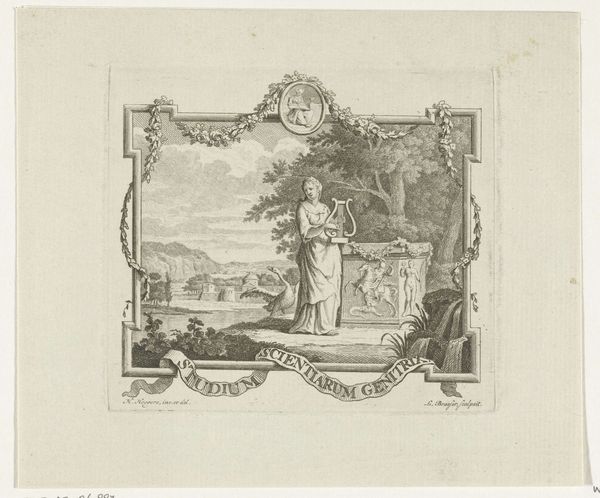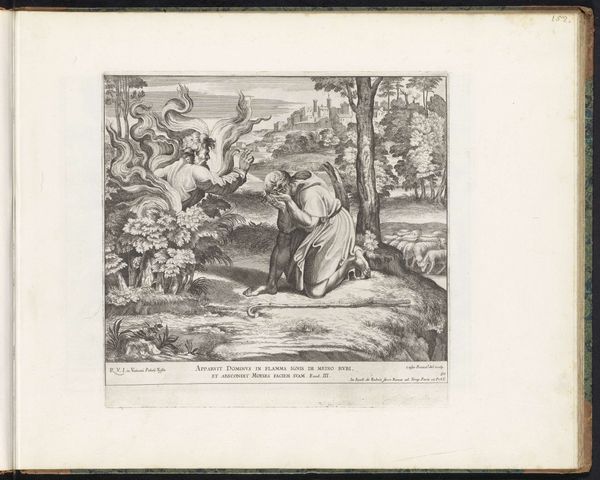
print, engraving
#
allegory
#
narrative-art
# print
#
landscape
#
classical-realism
#
classicism
#
history-painting
#
engraving
Dimensions: height 198 mm, width 119 mm
Copyright: Rijks Museum: Open Domain
Curator: This engraving, dating back to 1799, is entitled "Allegorical Tomb for Prince Frederik." It’s attributed to an anonymous artist. Editor: The image has an ethereal quality, almost dreamlike. Despite being an engraving, it carries a feeling of softness, as if the ink itself is a veil. The figures, the landscape, even the eagle overhead seem bathed in a muted light. Curator: Let's unpack that a bit. Allegorical representations were very popular at the time for conveying complex messages in accessible forms. We see classical figures like Minerva present, intertwined with symbols representing grief, virtue, and the prince himself. The entire image serves as a political statement reflecting on monarchy, loss, and the immortality of ideals. The intersection of personal grief with political ideology is very tangible here. Editor: Right, Minerva embodies wisdom and strategic warfare and seems central. I'm drawn to her spear and shield set near a monument with grieving putti, and above them, a winged eagle in flight clutching flags. They point towards a temple with allusions to the immortality of rulers and houses – what about the eagle motif appeals to you from a symbolist perspective? Curator: The artist weaves together cultural threads of mourning and heroism. The visual language relies heavily on classicism to lend authority and emotional weight to the subject matter. We see Prince Frederik idealized within a framework meant to transcend specific historical moments, suggesting an unchanging social order. It's about presenting death not as an end, but as a transformation that reinforces existing power dynamics. Editor: Yes, the allegorical representation of these ideals makes it timeless in a way. We're seeing potent images blended into one coherent message with many meanings depending on the viewer's historical vantage point. Looking closely I can see this complex composition invites further study into our past understanding of morality when associated with class and virtue! Curator: Precisely! Reflecting on it again reminds me of the delicate interplay between loss, power, and immortalized values. Editor: The symbols linger—suggesting how cultures deal with remembrance using visual representations to echo far into our future.
Comments
No comments
Be the first to comment and join the conversation on the ultimate creative platform.
